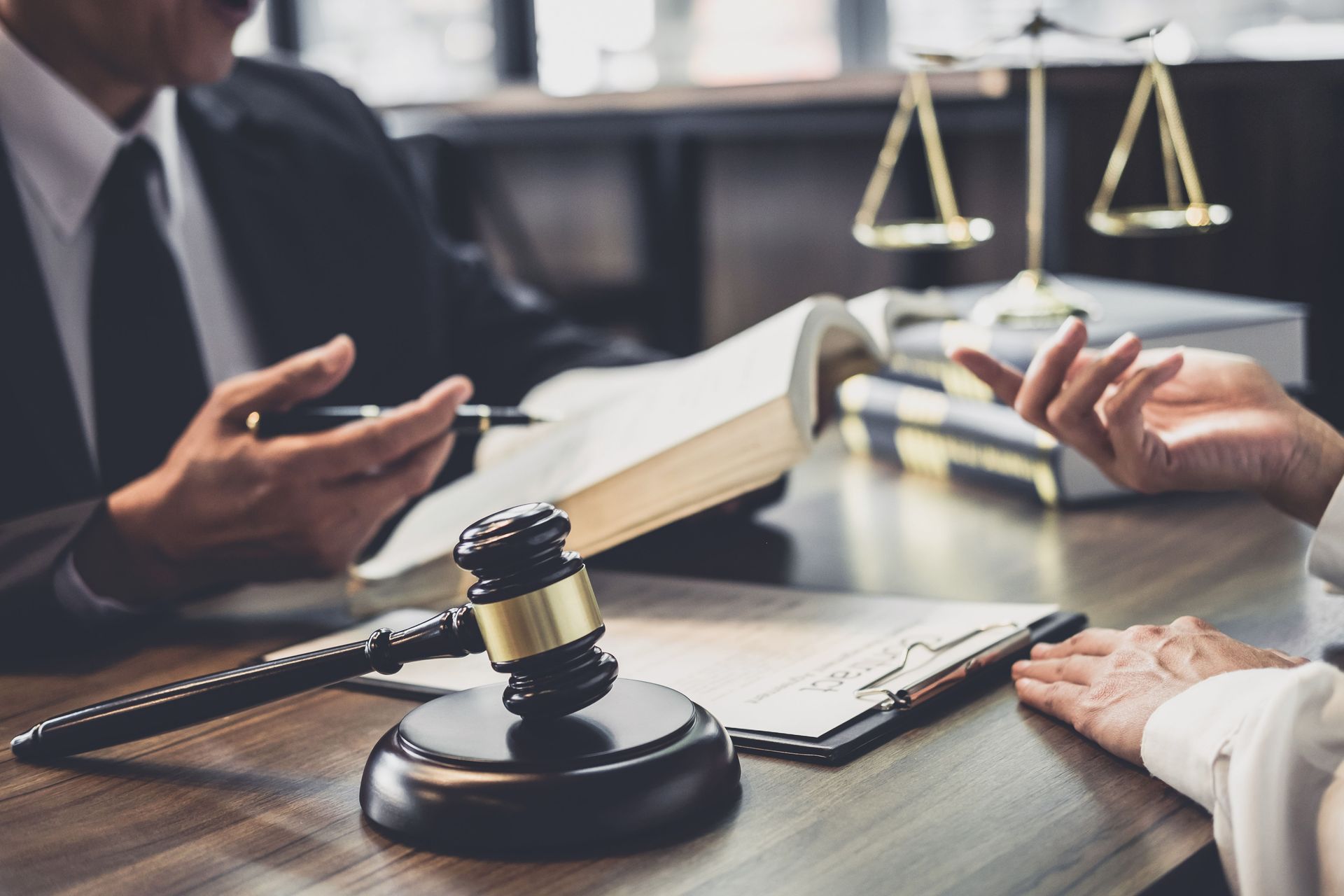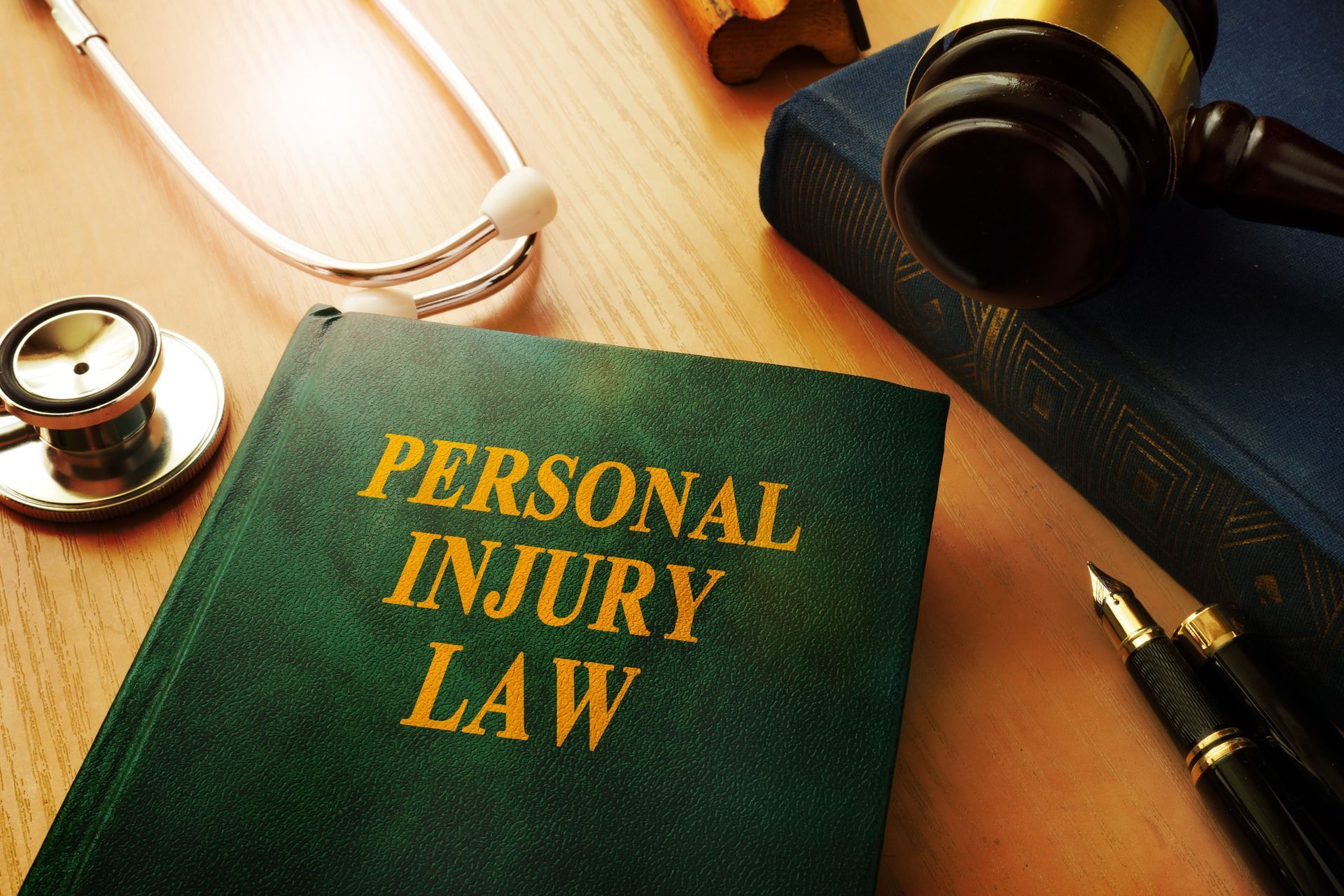October 28, 2025
Dealing with the aftermath of an injury can be a daunting experience, both emotionally and financially. During such challenging times, having a personal injury attorney by your side can make a significant difference. Not only do these professionals help protect your legal rights, but they also work tirelessly to maximize your compensation. According to IBISWorld, the U.S. has over 50,280 personal injury lawyers. By understanding the role and value of these legal experts, you will be better prepared to make informed decisions when navigating your unique circumstances.
Protecting Your Rights After an Accident
Gathering Relevant Evidence
Protecting one's rights begins with gathering all relevant evidence following an accident. Personal injury attorneys excel at identifying and collecting critical information that will support a compelling case. This includes obtaining police reports, medical records, and photographic evidence from the accident scene. Comprehensive evidence is vital for establishing fault and linking the defendant's actions to the plaintiff's injuries. The strategic preservation and presentation of evidence often form the backbone of successful personal injury claims.
Ensuring Proper Documentation
In addition to evidence gathering, proper documentation is essential for supporting an injury claim. Personal injury attorneys ensure that all necessary documents are compiled and maintained diligently to strengthen their clients' position. This includes documentation of medical treatments, communications with insurers, and detailed records of expenses incurred. Proper documentation provides a clear and organized account of the injury's impact and the resultant financial burden. By maintaining thorough records, attorneys help protect clients from disputes and ensure that their claims are robustly supported.
Communicating with Insurance Adjusters
Effective communication with insurance adjusters is a fundamental aspect of safeguarding an individual's rights. Personal injury attorneys take on the responsibility of handling these communications to ensure that clients are not taken advantage of or misled. Their deep understanding of insurance law and negotiation tactics allows attorneys to advocate effectively for fair treatment. By facilitating these discussions, attorneys protect clients from inadvertently undermining their claims through ill-advised statements. This vigilant oversight is key to preserving the integrity and strength of an injury claim.
Managing Statutory Deadlines
In personal injury law, meeting statutory deadlines is critical, and failing to do so can severely impact a case's fate. Personal injury attorneys manage these timelines diligently to ensure that clients' claims remain viable. They are acutely aware of the various statutes of limitations that govern the filing of claims and related legal motions. By maintaining a strict schedule, attorneys safeguard clients from procedural pitfalls that could jeopardize their legal rights. Their attention to deadlines is integral to ensuring that cases proceed unhindered and with the greatest possible chance of success.
Strategies for Building a Strong Case
Developing a Comprehensive Legal Strategy
Building a strong personal injury case necessitates a comprehensive legal strategy that addresses every aspect of the claim. A personal injury attorney will initiate this process by evaluating the merits of the case and outlining potential legal avenues. They consider both short-term and long-term implications to develop a strategy that optimizes their client's chances for compensation. This involves a careful assessment of all available evidence and the formulation of a cohesive legal argument. A well-developed strategy is instrumental in ensuring that a case unfolds in a manner that protects the client's rights and interests.
Collaborating with Expert Witnesses
Expert witnesses can provide pivotal support in substantiating a personal injury claim and strengthening its foundations. Personal injury attorneys often collaborate with medical experts, accident reconstructionists, and financial analysts to bolster their case. These professionals offer authoritative insights and testimony that can clarify complex issues for a judge or jury. By working together, attorneys and their expert witnesses convey a comprehensive and persuasive narrative. This collaborative effort can be a decisive factor in swaying outcomes in favor of the plaintiff and maximizing the potential award.
Analyzing Medical and Financial Reports
A significant component of case preparation involves a detailed analysis of medical and financial reports related to the injury. Personal injury attorneys meticulously review these documents to understand the full extent of the damages and their impact on the client's life. This analysis assists in quantifying the economic and non-economic aspects of the claim, such as ongoing medical needs and loss of earning capacity. By scrutinizing every detail, attorneys ensure that no element of the claim is overlooked or undervalued. This diligence is in service of crafting a cohesive argument that accurately represents the plaintiff's experience and needs.
Preparing for Negotiations and Mediation
Successfully navigating the negotiation and mediation phases of a personal injury case requires careful preparation and strategic insight. Personal injury attorneys spend significant time drafting detailed briefs and calculating robust negotiation strategies. This preparation sets the stage for productive discussions, as attorneys enter negotiations with clear objectives and the necessary leverage. During mediation, attorneys work collaboratively with mediators and the opposing party to reach an amicable resolution. By being well-prepared, attorneys enhance the likelihood of securing a favorable settlement without resorting to trial.
Taking a Case to Trial
Preparing for Court Procedures
Once a decision to go to trial is made, extensive preparation is undertaken to ensure a robust presentation of the case. A personal injury attorney will meticulously plan for court procedures, which includes developing arguments, compiling evidence, and organizing witness testimonies. This systematic preparation is essential for addressing the complexities and dynamics of courtroom litigation. By anticipating potential challenges and strategizing accordingly, attorneys aim to present a unified and persuasive narrative. Their comprehensive approach is crucial for effectively communicating the merits of the case to the court.
Building a Persuasive Court Argument
Crafting a persuasive argument for trial requires a nuanced understanding of legal principles and the ability to communicate them clearly. Personal injury attorneys construct their arguments by weaving together evidence, legal standards, and narrative elements that resonate with jurors. They work diligently to establish a compelling storyline that outlines the defendant's liability and the extent of the plaintiff's suffering. This involves careful selection of exhibits, deposition transcripts, and expert witness statements to support their claims. A persuasive court argument is critical for influencing the jury's perception and ultimately securing a favorable verdict.
Presenting Evidence Effectively
The presentation of evidence in court is a decisive factor influencing the outcomes of personal injury trials. A personal injury attorney will adeptly introduce and explain evidence to ensure that its significance is fully appreciated by all in attendance. They employ visual aids, expert testimony, and narrative technique to make the evidence accessible and compelling. This thoughtful presentation helps clarify the case's complexities and emphasizes the plaintiff's position. Effectively presented evidence builds credibility and underpins the arguments put forth by the plaintiff's legal team.
Understanding Jury Dynamics
Comprehending jury dynamics is an integral aspect of succeeding in a personal injury trial. Personal injury attorneys invest time in understanding the jurors' perspectives and potential biases, tailoring their approach to resonate with this unique audience. Their interactions with the jury shift from informative to persuasive, guiding them towards a favorable interpretation of the facts. By observing jury reactions and adapting to the courtroom's dynamic environment, attorneys sustain engagement and influence decisions. This psychological insight is indispensable for effectively communicating the plaintiff's case in a manner that engenders empathy and justice.
Navigating the aftermath of an injury is rarely straightforward, but having a personal injury attorney by your side can make a profound difference in both protecting your rights and securing fair compensation. Ultimately, engaging a knowledgeable personal injury attorney transforms a challenging, stressful situation into a managed, strategic process. In an often overwhelming legal landscape, this professional support can be the difference between settling for less and achieving a resolution that truly reflects the full extent of your losses and needs. Contact Thorson Switala Mondock & Snead LLP today to work with a legal professional you can depend on.











